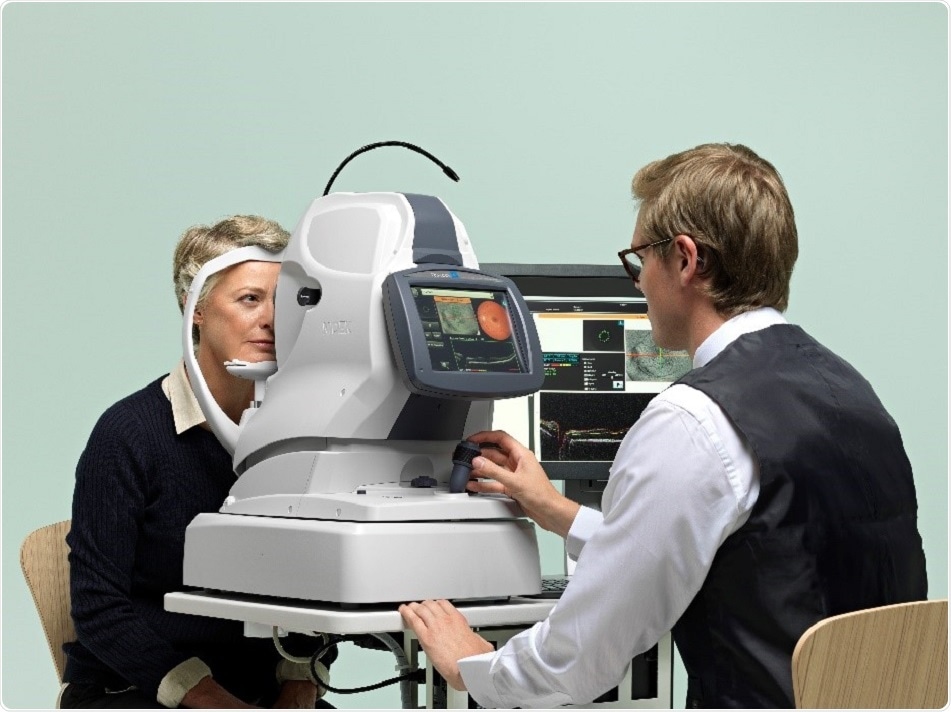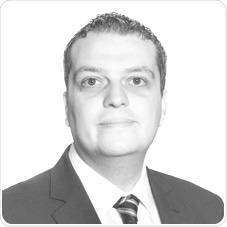An interview with Paul Morris, conducted by Alina Shrourou, BSc.
How common are eye conditions and how are they diagnosed?
Eye conditions account for 3% of all GP appointments, and the ophthalmology budget is the third largest budget within the NHS. One of the reasons for this is the fact that the morbidity for eye conditions is relatively low and people tend to live a long time with conditions and therefore require repeated visits.

Although some patients with acute eye problems may report directly to hospital eye service or their GPs, eye conditions are most commonly picked up by a visit to an optometrist on the high street through routine sight testing. The figures from the Royal National Institute of Blind People (RNIB) demonstrate that half of all sight loss is avoidable and obviously early detection is the key to that avoidance.
Please outline any current barriers preventing the public from checking on their eye health.
One of the biggest barriers would be awareness of where to go. There’s some confusion as to whether patients should go to the GP, pharmacist or the optometrist. Research last year showed that most patients would still go straight to the GP if they had a sudden onset eye condition. However, with optometric practices having lots of specialised equipment for eye examinations, it is advisable to go to an optometrist first and then be referred on if needed.
It's interesting to see that a number of services have sprung up in England, as well as Scotland, Wales and Northern Ireland, that manage a wide range of eye conditions while actively signposting patients from GP practices. For example, NHS direct lines into the inter-optometric practice for triage and management.
Why is it important for the public to monitor the health of their eyes?
50% of all blindness is preventable and most eye conditions carry no initial symptoms. Sometimes you wouldn't be aware of those symptoms until the disease was at quite an advanced stage, like with glaucoma for example.
Therefore, it is advisable that every patient has an eye examination at least every two years, and for younger children even more frequently than that. Of course, there are other at-risk groups that require close monitoring, such as people with a family history of glaucoma etc.
What are the early signs which indicate that a patient may need an eye examination?
You would think that this would just be poor or reduced sight. However, it’s not just pathology that can be picked up with an eye examination, but also conditions relating to refractive error, such as myopia, hypermetropia and astigmatism. Refractive error refers to the shape of your eye, causing light to bend so that it doesn’t fall directly onto the retina resulting in less clear vision.
These conditions can cause headaches, blurred vision, and all manner of symptoms, which can lead to the patient feeling uncomfortable or simply not being able to carry out their day-to-day activities as well as they should.
Here, we could really get into a whole factor of visual demands. It is a fact these days that most people use computers or display screen equipment of some kind. With the advent of smartphones and tablets, we spend more and more time on visually demanding tasks than we did previously.
This means that people with relatively mild prescriptions that we may not have prescribed for in the past, may still benefit from an optical appliance to correct their refractive error to ensure that they have the most comfortable vision and avoid headaches etc, while using electronic devices. The eyes are working harder than ever before because we've got so many more things that we use up close.
How can information gained from an eye examination reveal other general health conditions?
A large range of systemic conditions have early, or established signs within the eye. The most known example of this is diabetic retinopathy. Some individuals with diabetic retinopathy do not realise that they have the condition until an eye examination identifies haemorrhages and other vessel changes at the back of their eye. The same is true for hypertension, blood pressure, and a whole range of other eye conditions.
Please outline the process involved during an eye examination at Specsavers.
In the UK and Ireland, an eye examination has its contents defined in law. However, at Specsavers, we try to build on top of that. We offer digital retinal photography free of charge, whereas many others charge extra for this service.
We also make huge investments in additional technology and equipment that is used directly with patients for diagnostic purposes. Recently I outlined plans to include Optical Coherence Tomography (OCT) soon in all our practices in the UK and Ireland by the end of 2018. This technology will further help community optometrists to manage patients in the community and benefit all stakeholders.
More investment is made in our clinical staff. Since 2015 we have assisted our clinicians in achieving over 10,000 additional accreditations and qualifications in a wide range of fields including glaucoma, cataract and minor eye conditions.
What conditions can be identified from an eye examination at Specsavers?
As part of every eye examination the optometrist makes a thorough examination of the anterior and posterior eye to screen for the common eye conditions. The identification of conditions such as glaucoma, retinal issues, and age-related macular degeneration is possible, as well a whole host of associated conditions including anterior eye conditions, such as conjunctivitis.
There are too many to list, but what we can confirm is that our optometrists are highly trained clinical professionals backed up with cutting-edge technology within the practices that help with identification of these diseases and conditions.
What happens if the patient receives news on an eye condition that they were not expecting?
All optometrists are trained in interpersonal skill and receive ongoing training on how to empathize and relate to their patients’ needs and concerns. We provide a robust package of leaflets and patient information, which are co-branded by the College of Optometrists in the UK.
These provide reference to additional help and support services that the patient can access. However, we are always sure to explain to patients that they should contact us at any point if they need further help or assistance.
What impact do you think these services have on not only eye health, but also on healthcare in the community in general?
These services are vital to detection of eye conditions. Specsavers play an important community role in terms of educating people about their eye care and their general health. We have a growing remit in terms of public health awareness.
We spend a good proportion of time explaining to patients the risks and benefits of certain lifestyle choices that they may make, including walking, good diet, access to other services that may benefit them etc. We do all that we can to make ourselves visible and accessible within the community including outside of our remit of healthcare, getting involved in lots of community projects, which we are very proud of.
Where can readers find more information?
Please visit our website: https://www.specsavers.co.uk/eye-health
About Paul Morris

Paul Morris is the Director of Professional Advancement for Specsavers Opticians in the UK and Ireland. The role involves furthering clinical scope, professional services, standards, training and forming future strategy for the group. He previously held the role of Director of Optometry Advancement.
Paul has written, piloted and delivered various Specsavers training initiatives including Undergraduate, Postgraduate and Peer Review Facilitator Training. He sits on the editorial board of the ProFile Journal and is a CET article and case author. Paul is also the Ophthalmic Director of Specsavers Opticians in Bridgend and Porthcawl.
Outside of Specsavers Paul has been a Director of FODO, Chair of the Optical Confederation IT & Information Committee as well as an Optometry Wales Vice Chair. He has previously undertaken work as a clinical supervisor for the AOP and was founder and Director of BAM Optical Training & Solutions that delivered teaching to optometrists and pharmacists in ocular pathology. Paul has also held positions within the Hospital Eye Service as well as the School of Optometry & Visual Science in Cardiff and in 2011 began working within WOPEC (Wales Optometry Postgraduate Education Centre) to deliver postgraduate training to a range of Health Care Professionals and inform policy.